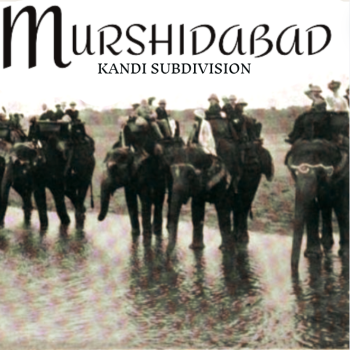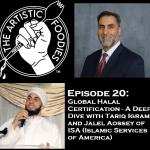If you haven’t already read “Practicing Islam in Short Shorts” by Thanaa El-Naggar that went viral last week, now would be a good time to do so. She expressed herself lucidly and luminously. Nothing short of a breath of fresh air, her voice pierced through my soul, serving as cold balm to my spiritual wounds.
Here was a young Muslim woman narrating her spiritual journey of how she transcended hollow religiosity, liberating herself from the chains of organized religion. Previously being a conservative minded Muslim myself, I felt like patting her back after I had finished reading her piece. After all, you don’t find many religious people who can really put their faith to test, and carve out their own spiritual path as compared to conveniently following what their parents or society teaches them.
Hence, I was really happy to see her article being so well received and going viral. But, no wonder, her wearing short shorts, drinking whiskey, and smoking weed had raised some eyebrows, causing quite a bit of controversy. Consequently, the critiques started popping up in the blogosphere.
Criticism is healthy, so long as it is constructive and is not just for the sake of it. Unfortunately, in the couple of critiques I read, none of the analysis had anything truly substantial to offer, and it seemed that they had failed to grasp any real idea of what she was trying to convey. Instead, they interpreted her article to mean as if it were an endorsement of wearing short shorts and consuming intoxicants in the name of Islam.
However, I beg to differ. Nowhere in her piece does she argue or even hint that these choices of hers are Islamic, even in her own liberal interpretation of Islam. Rather, what she’s essentially advocating for is a religiosity that “lives, and let lives” instead of excommunicating people due to a difference in opinion or practice. It was, in a way, ironic to observe some of the critiques being in the same self-righteous “I know it all, let me save you” tone; which is exactly what Thanaa seems to be so fed up with.
“The fact that she is a Muslim is true; no one can take that away from her. She is a Muslim, but not necessarily a mo’mina (true believer),” read this critique, for example.
As well-intentioned as this sentiment may be, it feels completely out of place. Let’s face it: at the end of the day, we’re all human and we all make mistakes. If failing to practice each and every tenet of Islam leads people to not being “true believers”, then I guess none of us really qualify to be one. Do we never lie or gossip? Do we stand up against oppression? Do we speak truth to power? The list could be endless. So, it is ultimately pointless to even make such a suggestion.
Sure, striving to practice the Quran as much as possible should be the ultimate aim for a Muslim, but naturally very few of us would attain that level of spirituality. Striving for perfection should not mean that one should feel remorse for a shortcoming here & there. If anything, it should enable us to appreciate the humanness of one another, and ultimately make us humble enough to focus on our own spiritual path, instead of throwing stones at others who slip.
Furthermore, and I’ll say it again: we’re human, not God. Let us be humble enough to internalize that fully. It is simply not in our domain to decide who is a “true believer” and who is not, unless this person’s actions results in the oppression of others.
The dumbing down of religion, which Thanaa talks about in her article, and restricting it to only the rigid do’s & don’ts devoid of any spirituality has created a void that has led many people away from religion altogether. Those that stay, at least a good majority of it seem to practice a very superficial form of it.
But, it doesn’t have to be that way.
Why do we forget that the Quran is not only concerned about modest dressing & avoiding intoxicants, but is so much more concerned about spiritual evolution, social justice, and unity of human beings? If it helps to put it in perspective, references to modest dressing & avoiding intoxicants in the Quran are not even in the double digits!
Of course, not to suggest for a second that these topics aren’t important, but are they more or equally important as the tenets mentioned above? In my opinion, no. It becomes increasingly frustrating to observe that it is only outer behaviors that seem to captivate the attention of so many Muslims today. The “right” way to perform our rituals, the “right” way to dress, the “right” way to this and the “right” way to that! Why does our discourse focus primarily only about these things?
We seem to be more concerned about our identity as religious people by dressing and speaking a certain way, than we are about making that inner transformation happen. It becomes a classic example of confusing the means to an end with the end itself. And that makes me question, are we all not terribly missing the point?
Essentially, what it all boils down to is this: Is wearing short shorts and consuming intoxicants really a priority over the rising sectarianism, dogmatism, the erosion of moral values, poverty, illiteracy, corruption, and the alarming abuses of human rights that seem to plague Muslim majority countries today?
I wouldn’t think so.
[Picture Credit: Jim Cooke]
Liked What You Read? Please share this article on your Facebook & Twitter accounts to promote our voice!
Want to be kept updated on our latest articles? Subscribe to our blog, and join us on our Facebook page!
















